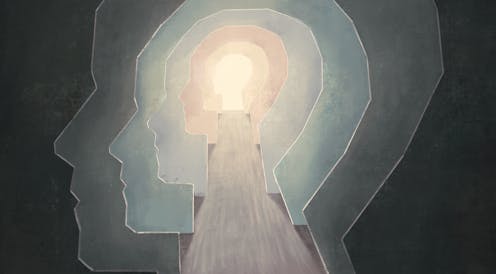Increased mental health awareness is one thing – but New Zealanders need greater mental health literacy too
- Written by Kristopher Nielsen, Adjunct Research Fellow and Clinical Psychologist, Te Herenga Waka — Victoria University of Wellington

Something is not working in our approach to mental health in Aotearoa New Zealand. According to Statistics New Zealand[1], more than a quarter of the population can be described as having poor mental wellbeing, and this proportion is increasing.
Problems are particularly prevalent in young people, with 23.6% of those aged 15-24 years reporting high or very high levels of psychological distress, according to the 2021/22 New Zealand Health Survey[2] – up from only 5.1% in the 2011/12 report.
There are many likely (and familiar) contributing factors, including COVID-19 and the associated social disruption, stress due to the rising cost of living, and inequity and marginalisation on the basis of identity.
Other plausible factors include existential concern over the climate crisis, overburdened and underpaid teachers, social media and the crumbing mental health system.
But there is a less obvious factor that may conceivably be contributing to the mental health crisis, particularly in young people: the paradoxical effects of heightened mental health awareness.
Defining the problem
Young people are more aware than ever of mental illness, largely due to explicit efforts in recent decades to raise awareness about mental health and mental disorders, including through the reach of social media.
But some recent research[3] has questioned whether this increased awareness is as beneficial as it may first seem. While greater awareness can mean “more accurate reporting of previously under-recognised symptoms”, it may also cause “some individuals to interpret and report milder forms of distress as mental health problems”.
Read more: Road to nowhere: New Zealanders struggle to get the help they need, 2 years on from a funding boost for mental health services[4]
People may then seek professional help, as they have been advised to do, but find such help is often unavailable. This in turn can lead to a very real increase in distress. And it may discourage more traditional and less clinical forms of coping such as talking with friends and family or making positive lifestyle changes.
It is also plausible that greater awareness and acceptance of mental health difficulties may lead people to see those issues as an inevitable part of who they are – as simply part of their brain chemistry.
Such a view could result in the loss of a sense of personal agency over psychological challenges, creating a sense of hopelessness about the possibility of positive change.
Mental health and identity
None of this is entirely surprising. The notion of “concept creep[5]” has been used to describe “the gradual semantic expansion of harm-related concepts such as bullying, mental disorder, prejudice, and trauma”.
Consider how terms such as “trauma” and “bullying” have grown in usage but become less specific in meaning as topics of public conversation. Anecdotally, this is what we seem to be seeing with public understanding of mental disorder – including the assumption that mental health problems are simply part of someone’s identity.
Read more: The impact of childhood and teenage anxiety disorders on later life – new research[6]
None of this suggests we should stop talking about such an important topic. Rather, we need to think very critically about how we talk about mental health and mental disorder – shifting from thinking in terms of mental health awareness to mental health literacy.
This means discussing what does count as a mental health problem – and also what doesn’t. For example, some people clearly experience genuinely problematic levels of anxiety. But, at the same time, anxiety is a normal and healthy human emotion. Where exactly do we draw the line?
Read more: Is 'climate anxiety' a clinical diagnosis? Should it be?[7]
Personal agency and hope
To answer questions like this we need to really understand what we mean by the concept of “mental disorder” in the first place.
References
- ^ Statistics New Zealand (www.stats.govt.nz)
- ^ New Zealand Health Survey (www.health.govt.nz)
- ^ recent research (www.sciencedirect.com)
- ^ Road to nowhere: New Zealanders struggle to get the help they need, 2 years on from a funding boost for mental health services (theconversation.com)
- ^ concept creep (www.tandfonline.com)
- ^ The impact of childhood and teenage anxiety disorders on later life – new research (theconversation.com)
- ^ Is 'climate anxiety' a clinical diagnosis? Should it be? (theconversation.com)
- ^ Embodied, Embedded, and Enactive Psychopathology: Reimagining Mental Disorder (link.springer.com)
















